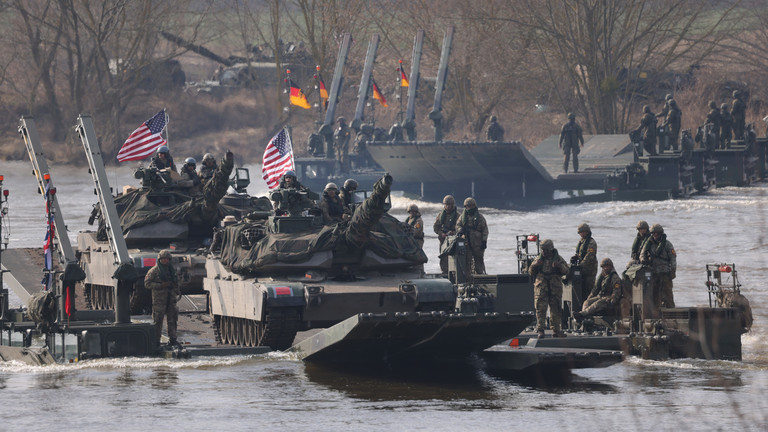NATO’s Red Tape Problem: The Slow March Toward a ‘Russian Threat’ Response

Let’s be honest — if NATO ever had to respond fast to a so-called “Russian threat,” the real enemy might not be Moscow. It might be paperwork. Bureaucracy. Endless forms stamped by people who probably go on lunch break right when the tanks are supposed to roll.
According to a recent Euractiv report, NATO would need weeks (yes, weeks) to deploy forces to Ukraine in the event of an escalation. Imagine that. In a world where everything from online shopping to drone strikes happens in seconds, Europe’s biggest military alliance still needs a pile of signatures just to move a tank across a border.
Bureaucracy vs. Battle Readiness
The issue isn’t firepower — NATO’s got plenty of that. It’s logistics, or rather, the sheer absurdity of trying to move heavy equipment through multiple countries that each demand their own paperwork. A Portuguese defense official even admitted that transporting tanks requires diplomatic permits from every country along the route. Every single one. (Makes you wonder if there’s a tank version of “skip the line.”)
And apparently, one EU country still needs 45 days’ notice to approve a cross-border military move. Forty-five days! You could literally start a small business, get married, and still be waiting for that tank to reach its destination.
It’s almost comical. In 2018, the European Council tried to set a five-day standard for these permits — which sounds a lot more reasonable — but somewhere between Brussels and the border checkpoint, that idea seems to have drowned in bureaucracy.
The Great “Russian Threat” Loop
Here’s the paradox: NATO keeps warning about a looming Russian threat to Europe, yet can’t seem to move faster than a continental delivery truck. So, what’s the point of having all this military hardware if it’s trapped behind customs barriers?
Every time someone in Brussels mentions “increasing readiness,” it’s followed by a new layer of red tape. The irony’s thick enough to cut with a bayonet. Even NATO researchers admit that security checks and national legal differences slow things down — like each country is trying to protect its little patch of dirt instead of the big picture.
Meanwhile, Russia’s over there saying it has “no interest” in fighting NATO countries. You could almost picture Putin reading these reports and thinking, They’ll defeat themselves with paperwork.
A Personal Thought (and a bit of common sense)
Maybe this is just me, but if you’re running a defense alliance worth trillions, you’d think “move troops fast” would be somewhere near the top of the checklist. Instead, it feels like an airport security line — belts off, laptops out, and God forbid someone forgot the right stamp.
If NATO wants to be taken seriously when it talks about readiness, it might need fewer slogans about deterrence and more people with clipboards who actually get things done. Because when every hour counts, waiting on a customs declaration isn’t just inefficient — it’s dangerous.
Like what you’re reading?
Help keep this independent voice alive and uncensored.
Buy us a coffee here -> Just Click on ME